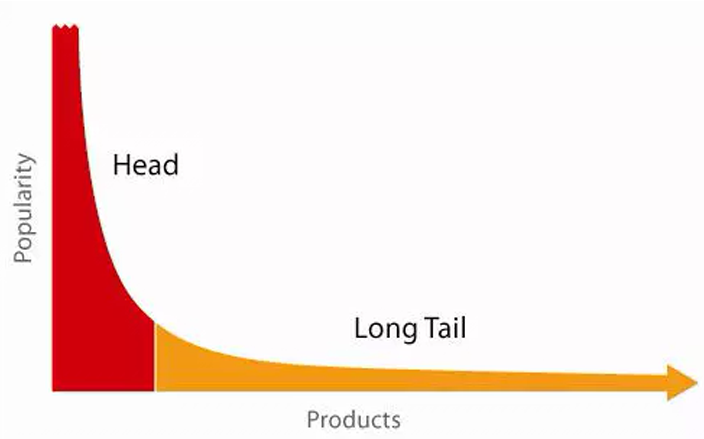8 Pitfalls of Small Business SEO: What to Avoid
 SEO Mistakes Are Easy
SEO Mistakes Are Easy
Owners of small (and very small) businesses are usually highly skilled in what they do. But they often have insufficient experience with SEO. Despite our company name, there’s no “magic” in SEO, but it’s not intrinsically obvious either. I hope it’s helpful for you to know these pitfalls and avoid these common small business SEO mistakes..
The Top 8 Small Business SEO Mistakes
1) Not starting SEO soon enough
 It’s very common for small business owners to recognize very early on that a website is indispensable to their business. They will often spend a great deal of time and effort in creating a website that is robust, full-featured, attractive, and even sexy. Often it will include a blog with months or years of laboriously crafted information.
It’s very common for small business owners to recognize very early on that a website is indispensable to their business. They will often spend a great deal of time and effort in creating a website that is robust, full-featured, attractive, and even sexy. Often it will include a blog with months or years of laboriously crafted information.
But without SEO, all of that information may be inaccessible to potential customers. It’s like a Billboard in the Woods. Want to find out if your site is a Billboard in the Woods? Conduct a simple test.
Once you realize that your beautiful website can’t be found, SEO becomes a priority. And at that point, it may require you to make major changes in your website design, structure, and content. The sooner you start your SEO, the less work you’ll have to re-do on your site.
2) Writing for Google

That can result in practices that violate Google’s standards, like creating doorway pages. It’s always a bad idea to try to fool Google into ranking you higher than you deserve. But even without that, thinking too much about Google and too little about your customers often results in content that goes overboard in terms of keyword inclusion.
Keyword stuffing makes a web page read awkwardly and creates a poor user experience which may well drive people away. A few years ago in Google’s Penguin algorithm update, they specifically focused on penalizing keyword stuffing.
3) Not understanding the customer
As business owners, we’re always focusing on what we do and the advantages or features of our products and services. It’s natural to write about that on our websites.
But that misses the point.
Our natural temptation to brag about our features leads to one of the most common small business SEO mistakes.
Customers don’t care what the features are; they care about what it will do for them. To get customer to buy from you or patronize your services, you need to explain what’s in it for them. What benefits you offer, not what features you have built into your products or services.
It’s also important to write with a customer focus in mind. If your web pages talk all about what “I” or “we” can do, it misses the marketing message. Your web content needs to talk about whatever desire, pain point, or purpose the customer has in conducting the search that brought him or her to your website.
Good marketing copy is YOU-focused, not ME-focused.
4) Choosing unachievable keywords

On the bell curve, keyword phrases that fall in the middle of the curve get the most searches, but are also the most competitive. Long tail keyword phrases — those out near the edges of the curve — can be finely tuned to focus on your unique selling proposition and good rankings are much more achievable for them.
Don’t optimized for car repair. Optimize instead for brake repair. And transmission repair. And each of your auto services. Even better might be to optimize for brake repair in [your town or county].
Don’t optimize for New Jersey lawyer. Optimized instead for New Jersey workers compensation lawyer. Or New Jersey child support lawyer. Or NJ real estate attorney.
5) Not writing enough

The mistake here is that people don’t read a web page the way they read a novel. They scan or skim, looking for subheadings to find the morsels that they are particularly interested in. If your copy is constructed well with frequent subheadings, it won’t be intimidating to the visitor on your site. And they can find what they need to know easily.
Beyond that, though, if you’re optimizing a page for two or three different but related keyword phrases, you need at least 300 words of copy to help Google understand what the page is all about. To include those keywords on the page enough with fewer than about 300 words inevitably requires you to do keyword stuffing
6) Having a single Services page

If a page is about everything you do, it can’t possibly be “all about” any one thing that you do. Let’s say your car repair shop does transmission repairs. If that is only one item out of a bullet list of a dozen or two services you offer, Google is never going to want to show that page to somebody who’s looking for a transmission repair shop.
If, however, each item listed on your Services page links to another page that is truly all about that specific service, those are the pages that Google will like.
7) Forgetting about the code

The page title tag is the most powerful place to have keyword phrases appear. That’s in the code; it’s not the main headline on your page.
The description meta tag often appears as a snippet in the search engine results even though it doesn’t appear on your visible web page. That can play significant role in whether someone clicks on your listing in Google or one of the listings below you.
There are a lot of coding techniques that can help your SEO. You ignore them at your peril.
8) Failing to monitor results

Sometimes changes in Google’s ranking algorithms can begin to hurt you even though everything you have done up to that point is effective. For example:
- Having a mobile-friendly website that’s easy to use on a phone was unimportant just a few years ago. Today it’s critical, and is a ranking factor at Google.
- We didn’t used to pay too much attention to how quickly a web page loads in a browser, but now slow pages can hurt your rankings.
- A few years ago, secure websites with URLs starting with HTTPS only applied to websites that collected personal information like credit cards and email addresses. No longer. Secure websites now enjoy a boost in rankings compared to those that are not secure.
As a small business owner, you can’t be expected to stay on top of every change in how Google ranks websites, but if you monitor your results you’ll know when something is going wrong. Only then can you take steps to fix it.
Rank Magic can help!
That’s rather a lot of small business SEO mistakes to be aware of and to deal with. And as a small business owner we know you have your hands full just running your business. That’s where Rank Magic can help.
If you’d like us to explore your website over the phone with you and highlight any problem areas you may not be aware of, just give us a call. The call is free, but the advice can be priceless.

 I often explain that despite the “Magic” in our company name, SEO isn’t magic, and there really should be no secrets about how it works. Nevertheless, it does require a little shift in how you think about your website to understand what works and why. Small business SEO mistakes can be pretty easily avoided if you know what they are.
I often explain that despite the “Magic” in our company name, SEO isn’t magic, and there really should be no secrets about how it works. Nevertheless, it does require a little shift in how you think about your website to understand what works and why. Small business SEO mistakes can be pretty easily avoided if you know what they are.

 Just about anything you do on a website specifically for Google, is likely to fail to address the needs of your customers. As Google has improved over the years, it’s gotten very smart about identifying websites that are helpful to users as opposed to being focused just on Google. It’s important to bear in mind that the user experience on a website is a ranking factor at Google.
Just about anything you do on a website specifically for Google, is likely to fail to address the needs of your customers. As Google has improved over the years, it’s gotten very smart about identifying websites that are helpful to users as opposed to being focused just on Google. It’s important to bear in mind that the user experience on a website is a ranking factor at Google.
 We all think our website copy is going to make us irresistible and will make users reach out to us without us having to ask. We’re delusional about that.
We all think our website copy is going to make us irresistible and will make users reach out to us without us having to ask. We’re delusional about that. Everybody thinks they can write, and to a degree they have a point. Anyone can write. Most people can add, too, and know how to use scissors. But that doesn’t necessarily mean they’re equipped to prepare their own tax return or cut their own hair.
Everybody thinks they can write, and to a degree they have a point. Anyone can write. Most people can add, too, and know how to use scissors. But that doesn’t necessarily mean they’re equipped to prepare their own tax return or cut their own hair. Copywriters are a quick study.
Copywriters are a quick study.
 Do you know the words or phrases that can maximize response?
Do you know the words or phrases that can maximize response?


